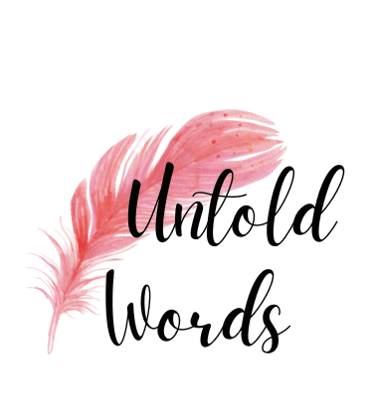Why Reading Non-Fiction is More Important Than Ever
Discover the multitude of benefits that non-fiction books offer, from practical skills to fostering curiosity and promoting critical literacy. Make non-fiction an essential part of your reading routine today!
BLOGS
Abeer Mishra
12/1/20244 min read


Non-fiction is experiencing a renaissance. From memoirs to self-help, investigative journalism to in-depth biographies, people are turning to non-fiction books more than ever. But why? What's fueling this surge in popularity?
The value of non-fiction lies not just in the stories it tells but in the practical knowledge and skills it equips us with—knowledge that can transform how we think and act in our daily and professional lives.
If you’re a bookworm seeking your next favorite genre or a lifelong learner eager to grow, this blog will uncover why non-fiction deserves your attention and why it’s more relevant than ever.
Benefits of Non-Fiction Reading
Enhancing Critical Thinking and Problem-Solving Skills
Non-fiction sharpens your ability to assess information critically. Books on science, history, or even business teach readers how to evaluate data, connect ideas, and form logical conclusions. For example, Malcolm Gladwell's Outliers examines the factors behind success, prompting readers to approach achievements with a critical mind.
Think of non-fiction as mental weightlifting. Each read strengthens your analytical skills, training your brain to better dissect real-world problems and develop creative solutions.
Expanding Knowledge on Diverse Topics and Current Affairs
Non-fiction widens your understanding of the world. Delve into a well-researched book on climate change, like The Uninhabitable Earth by David Wallace-Wells, and you'll gain comprehensive insights into one of the most urgent issues of our time.
Even topics you’d never considered before become fascinating. Want to know how habits form? Read Charles Duhigg's The Power of Habit. Intrigued by human psychology? Adam Grant’s Think Again offers a fresh perspective on reevaluating opinions. These books don’t just inform; they also inspire you to think more deeply.
Improving Memory and Cognitive Function
Did you know that reading non-fiction can boost your memory? When you read a factual account or learn a new concept, your brain creates neural connections to store this information. This process enhances your cognitive function.
Studies even suggest that sustained engagement with non-fiction improves both short- and long-term memory. By revisiting the content periodically—through notes or discussions—you build a stronger mental foundation that allows you to recall information accurately and effectively.
Impact of Non-Fiction on Daily Life
How Non-Fiction Books Can Inspire Positive Lifestyle Changes
Non-fiction offers practical advice you can apply immediately. Books like Marie Kondo's The Life-Changing Magic of Tidying Up have motivated people worldwide to declutter and reorganize their homes, while James Clear's Atomic Habits has helped readers adopt routines that stick.
The ripple effect of reading non-fiction goes further. It sparks reflection—on how we spend our time, approach challenges, and pursue our goals—leading to intentional and meaningful lifestyle shifts.
The Role of Non-Fiction in Career Development and Lifelong Learning
If self-improvement is your goal, non-fiction is your ally. Books like Lean In by Sheryl Sandberg empower individuals to realize their professional potential, while Range by David Epstein emphasizes the value of generalist skills in increasingly specialized industries.
Non-fiction teaches practical tools, from negotiation tactics to financial literacy. With direct connections between book content and real-world applications, it can elevate your career trajectory—and make you a more informed, effective professional.
For lifelong learners, non-fiction fosters curiosity, feeding an endless hunger for knowledge. The desire to understand the world better—and your place in it—is the ultimate motivator for exploring this rich genre.
Overcoming Common Hurdles to Reading Non-Fiction
Tips for Selecting Non-Fiction Books That Resonate with Personal Interests
Choosing the right non-fiction book can feel overwhelming, given the vast selection available. Start by identifying your interests or goals. Are you intrigued by history? Look for bestsellers like Educated by Tara Westover. Want to master your finances? Try The Psychology of Money by Morgan Housel.
Rely on trusted resources like Goodreads reviews, reading forums, or curated lists from experts in the genre. Explore audiobooks, too—they're an excellent way to dip into non-fiction during commutes or workouts.
Strategies for Staying Engaged with Non-Fiction Content
Non-fiction doesn't have to be dry or difficult to digest! Follow these strategies to keep your interest alive:
Set small, manageable goals—tackle one chapter per session rather than trying to finish the book in one go.
Annotate and highlight—mark key ideas and phrases, and jot down your reflections in the margins.
Join a book club—engaging in discussions with fellow readers deepens your understanding and adds accountability.
Books by authors who blend storytelling with factual content—like Yuval Noah Harari (Sapiens) or Erik Larson (The Splendid and the Vile)—can also keep you captivated.
The Future of Non-Fiction Reading
The Digital Revolution's Impact on Non-Fiction Consumption
With the rise of eBooks and audiobooks, non-fiction has become more accessible than ever. Platforms like Audible and Blinkist even summarize key takeaways from books, allowing readers to gain insights quickly.
This digital transformation ensures that you can seamlessly incorporate non-fiction into your busy lifestyle, whether you're reading on a Kindle during your morning commute or listening to a podcast-style narrative on your lunch break.
The Role of Non-Fiction in Combating Misinformation and Promoting Critical Literacy
Non-fiction's role in education and society cannot be overstated. High-quality, evidence-based books help readers discern facts from misinformation. They teach critical literacy—a vital skill in an era defined by rapid information spread and polarization.
By encouraging rigorous inquiry, non-fiction not only enhances individual knowledge but also strengthens societal understanding. People informed through reliable sources become more engaged citizens, capable of shaping thoughtful conversations and decisions.
Make Non-Fiction Part of Your Routine
Non-fiction holds the power to transform your perspective, enrich your understanding, and improve your life. From boosting critical thinking to inspiring personal growth, it ticks every box for a bookworm or lifelong learner.
If you've been sticking to fiction exclusively, now's the time to diversify your reading habits. Identify your interests, pick a compelling title, and start discovering the practical value of non-fiction.
And don’t keep this to yourself—share your thoughts on non-fiction with your community. Tag a fellow bookworm or post your favorite non-fiction titles in the comments below. Together, we can create a culture of lifelong learning and growth, one page at a time.
